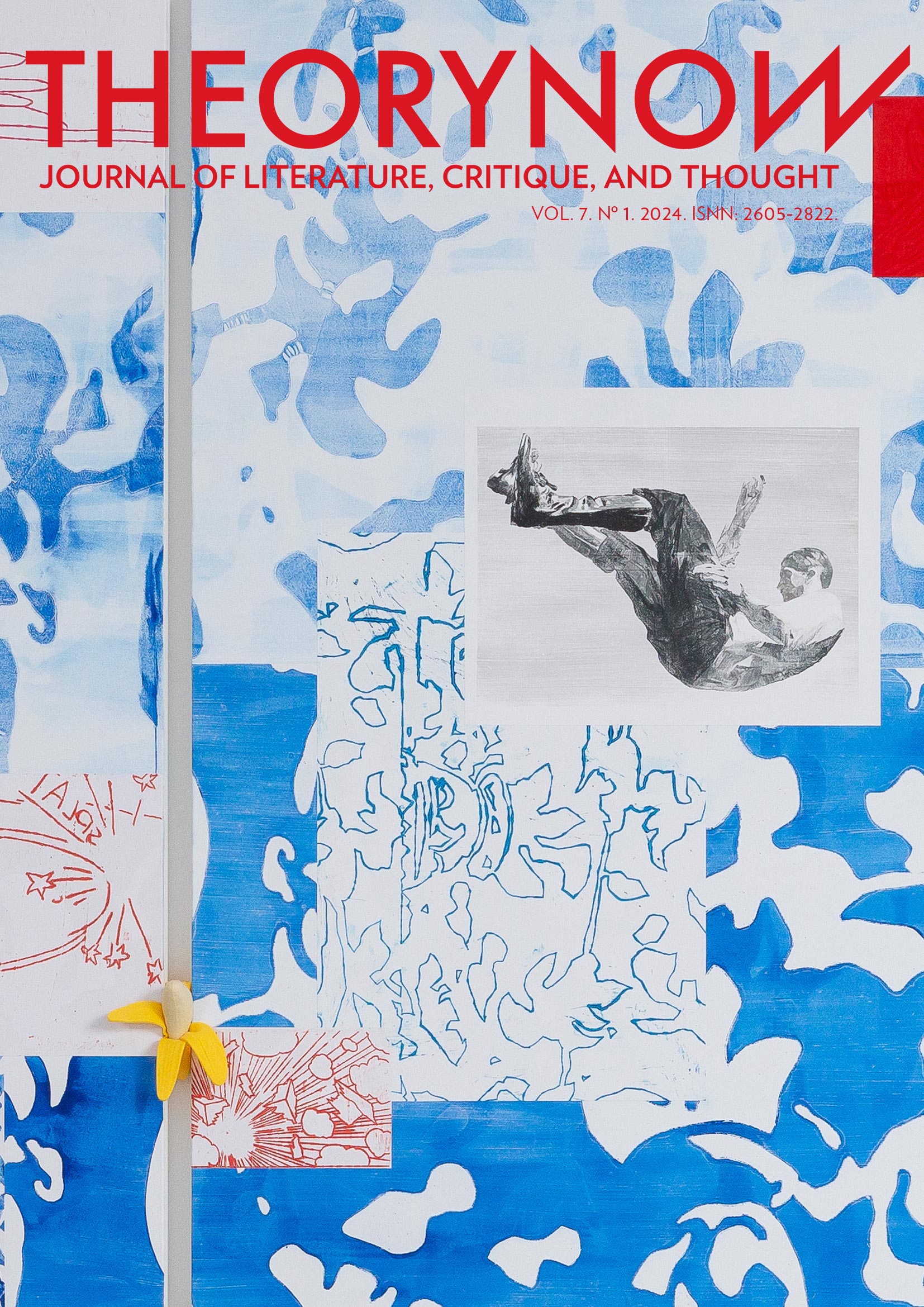The Powers of Fiction According to Roger Caillois
From the Death of Literature to Generalized Poetics
DOI:
https://doi.org/10.30827/tn.v7i1.29113Keywords:
fiction, novel, commitment, responsibility of the writer, fantasy, generalized poetics, petrificationAbstract
After asserting that literature was dead, Roger Caillois became a writer and elevated fiction to the status of a small-scale universe. In so doing, he made fiction not only move away from the human but also reveal a universe without mankind. This article examines this contradiction by following Rancière’s view that "the life of literature is the life of this contradiction": Far from making Caillois desist, the eviction of literature gave him the justification to write. Until the end of his life, this former travelling companion of the Surrealists and co-founder of the Collège de Sociologie kept laying the foundations of a generalized poetics in which the most disjointed elements of the universe reveal their subterranean brotherhood, where the wavelength of a stone travels and hits the echo chamber of the poem. From fables to stones, Caillois proposes a new distribution of the sensible that brings man back into the natural fabric from which he originates and reconciles him with the syntax of the universe. Rancière's concept of "literary petrification", following Sartre, sheds light on this literary and political gesture, through which Caillois makes us listen to the stones and their more-than-human serenities.
Downloads
References
Aristote. Poétique. Traduit par Pierre Destrée. Paris, Flammarion, 2021.
Baudelaire, Charles. Critique d’art, suivi de Critique musicale, édition établie par Claude Pichois. Paris, Gallimard, 1976.
Barthes, Roland. Le Degré zéro de l’écriture. Paris, Seuil, 1953.
Benjamin, Walter. « Le Surréalisme. Le dernier instantané de l’intelligentsia européenne » (1929). Œuvres, II. Traduit par Maurice de Gandillac, Rainer Rochlitz et Pierre Rusch, Paris, Gallimard, 2000, pp. 113-134.
Bergson, Henri. Les Deux Sources de la morale et de la religion. Paris, Félix Alcan, 1932.
Borges, Jorge Luis. Fictions. Traduit par Néstor Ibarra, Paul Verdevoye et Roger Caillois, Paris, Gallimard, 1957.
Bimbenet, Étienne. « "Affirmer, tel est mon souci". La provocation philosophique d’Yves Bonnefoy », Bonnefoy et la philosophie, édité par Jérôme Thélot, Paris, Manucius, 2023, pp. 17-27.
Boileau, Nicolas. Art poétique. Paris, Flammarion, 1998.
Blanchot, Maurice. Comment la littérature est-elle possible ? Paris, José Corti, 1942.
Caillois, Roger. Puissances du roman. Marseille, Sagittaire, 1942.
____. Babel. Paris, Gallimard, 1948.
____. Poétique de St.-John Perse. Paris, Gallimard, 1954.
____. Les jeux et les hommes. Paris, Gallimard, 1958.
____. Approches de l’imaginaire. Paris, Gallimard, 1974.
____. Pierres réfléchies. Paris, Gallimard, 1975.
____. « Agates paradoxales ». La Nouvelle Revue Française, no. 291, 1977, pp. 1-14.
____. Rencontres. Paris, Presses Universitaires de France, 1978.
____. Œuvres. Paris, Gallimard, 2008.
____. La Lecture des pierres. Paris, Éditions Xavier Barral, 2015.
Camus, Albert. L’Étranger. Paris, Gallimard, 1942.
Cioran, Emil. Exercices d’admiration : essais et portraits. Paris, Gallimard, 1986.
Hofmannsthal, Hugo von. Lettre de Lord Chandos et autres textes sur la poésie. Traduction de Jean-Claude Schneider et Albert Kohn. Paris, Gallimard, 1992.
Hollier, Denis. Les Dépossédés (Bataille, Caillois, Leiris, Malraux, Sartre). Paris, Éditions de Minuit, 1993.
Jenny, Laurent, éditeur. Roger Caillois, la pensée aventurée. Paris, Belin, 1992.
Mathieu, Jean-Baptiste. « Engagement et responsabilité. Sur Babel de Roger Caillois », L’engagement littéraire, édité par Emmanuel Bouju, Rennes, Presses universitaires de Rennes, 2005, pp. 43-48 DOI : https://doi.org/10.4000/books.pur.30040.
Meillassoux, Quentin. Après la finitude, Essai sur la nécessité de la contingence. Paris, Seuil, 2012.
Rancière, Jacques. Politique de la littérature. Paris, Galilée, 2007.
____. Les bords de la fiction. Paris, Seuil, 2017.
Sartre, Jean-Paul. La Nausée. Paris, Gallimard, 1938.
____. « L’homme et les choses ». Critiques littéraires (Situations, I). Paris, Gallimard, 1947, pp. 226-270.
____. Qu’est-ce que la littérature ? (Situations II). Paris, Gallimard, 1948.
Starobinski, Jean. « Saturne au ciel des pierres ». L’encre de la mélancolie. Paris, Seuil, 2012, pp. 619-633.
Térence. Comédies. Tome II : Heautontimoroumenos – Phormion. Traduit par Jules Marouzeau, Paris, Les Belles Lettres, 1984.
Downloads
Published
How to Cite
Issue
Section
License
Theory Now. Journal of Literature, Critique, and Thought is an immediate open-access publication which is available at no cost for readers and authors alike. Authors are not charged any kind of fee for the editorial processing of their articles. Reading, downloading, copying, distributing, printing, searching, linking or reusing all published articles for non-commercial uses is allowed on the condition of citing the author, the journal and the editing body. All intellectual material published in this journal is protected under a Creative Commons Attribution-NonCommercial 3.0 Spain license.
Dissemination of the articles in social (Facebook, Twitter, Linkedin, etc.) and scientific networks (ResearchGate, Academia.edu, etc.), public repositories at universities and other institutions, blogs, personal or institutional websites, Google Scholar, ORCID, ResearchID, ScopusID, etc. is strongly encouraged. In all cases, the intellectual property of the articles and any possible monetary profits derived from them belong exclusively to the authors.














